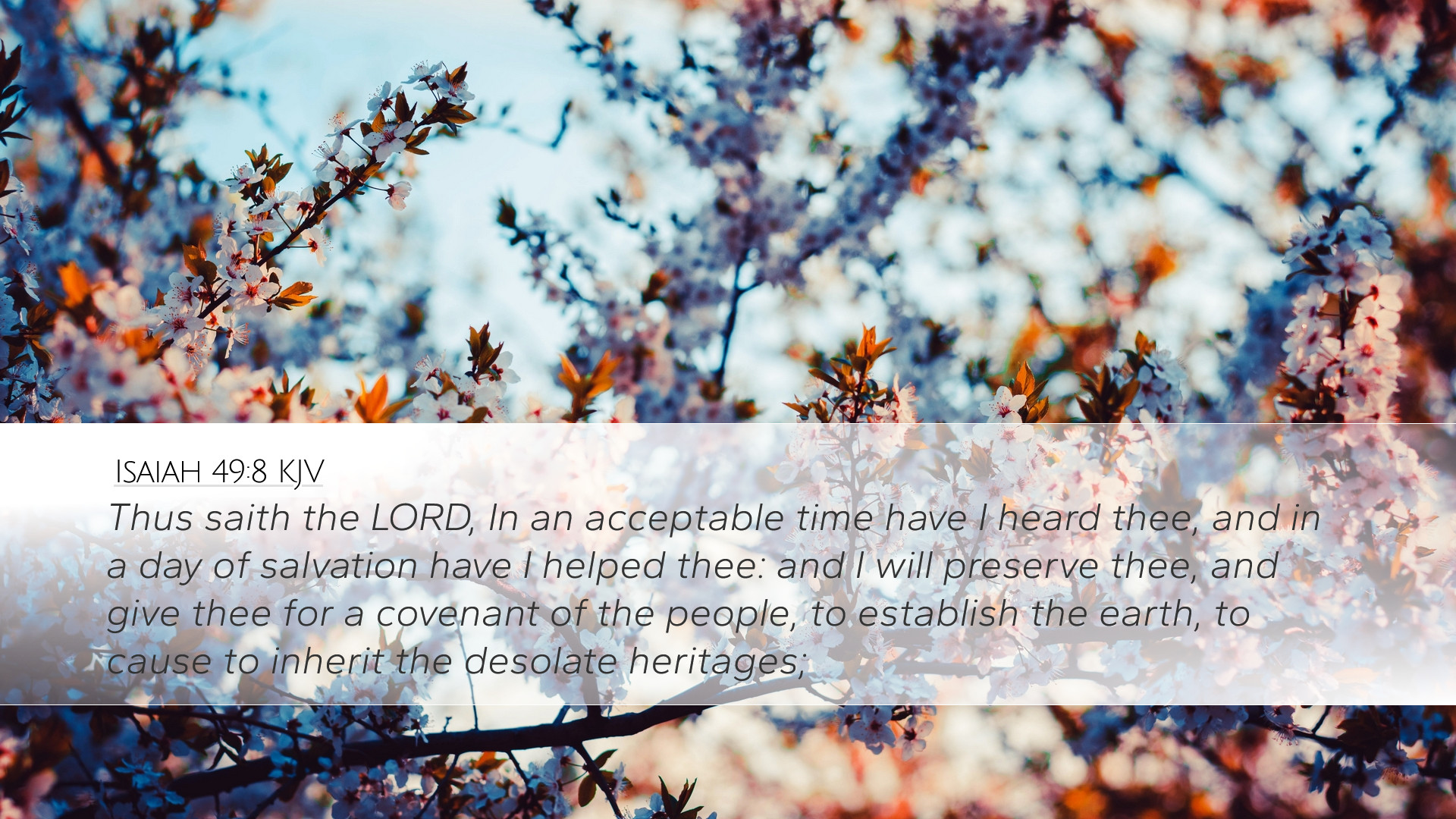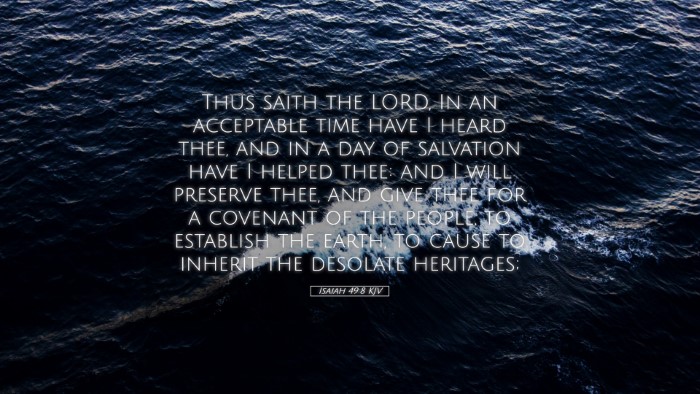Commentary on Isaiah 49:8
Verse: Isaiah 49:8 - "Thus saith the Lord, In an acceptable time have I heard thee, and in a day of salvation have I helped thee: and I will preserve thee, and give thee for a covenant of the people, to establish the earth, to cause to inherit the desolate heritages."
Introduction
This verse from Isaiah speaks profoundly to the theme of salvation, divine timing, and covenantal love. It promises restoration and sets forth the role of God's servant, which resonates deeply within both individual and corporate contexts of faith.
Contextual Analysis
The context of Isaiah 49 reveals God's intention to restore Israel and fulfill His promises. Historical analysis indicates that Israel was experiencing exile and despair; hence, God’s declaration came as a beacon of hope.
Acceptable Time
Matthew Henry highlights that "acceptable time" speaks to God's providential timing in which He acts for His people. It is not merely a chronological consideration but rather signifies a divine appointment where God's grace meets human need.
Day of Salvation
According to Adam Clarke, the "day of salvation" refers to specific moments where God intervenes in profound ways. The interpretation delves deeper into how this day reflects God's readiness to restore and save.
Theological Insights
This verse encapsulates several theological themes pertinent to pastors, scholars, and students alike. These include:
- Divine Sovereignty: The Lord declares His support and help, emphasizing His control over history and human affairs.
- Covenant Theology: The phrase "give thee for a covenant of the people" indicates the establishment of a covenant relationship that is central to biblical theology.
- Salvation History: The mention of salvation informs understanding of God's overarching redemptive plan through Christ.
Commentary on Key Phrases
"In an acceptable time have I heard thee"
Albert Barnes notes that this phrase assures the people that God hears their cries. The "acceptable time" reminds believers that God’s timing, often different from human perception, is perfect and purposeful.
"In a day of salvation have I helped thee"
Henry emphasizes the significance of divine help during times of need, affirming that God's intervention is timely and impactful, transforming despair into hope and aid.
"And I will preserve thee"
This phrase underscores God’s commitment to protect and sustain His people. Clarke elaborates on the active role of God as a preserver, engaging with the life of every believer.
"To give thee for a covenant of the people"
The covenant concept comes to the forefront, where God establishes a new way of relating to His people, inviting them into relationship rather than mere obligation. It embodies grace as God invites humanity into a covenantal bond.
"To establish the earth, to cause to inherit the desolate heritages"
This part of the verse points to restoration not only spiritually but also physically and socially. Barnes explains that it reflects fullness and the renewal of creation itself, echoing the hope of new beginnings after desolation.
Applications for Ministry
In applying the insights of this verse, pastors and theologians should consider the following:
- Message of Hope: The verse can undergird sermons that tackle themes of hope and restoration, offering congregations assurance of God's presence in their trials.
- Covenantal Relationship: Teaching about the nature of God's covenant invites believers to understand their identity and role within God's redemptive history.
- Emphasis on Divine Timing: Pastors can encourage believers to trust in God's timing, especially during times of need or waiting, highlighting that God hears their prayers.
Conclusion
Isaiah 49:8 serves as a multifaceted proclamation of God's faithfulness and the transformative power of His covenant. The themes within this verse resonate enduringly, highlighting how God not only saves but also invites humanity into a deeper relationship with Him, establishing hope amidst despair.


